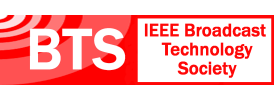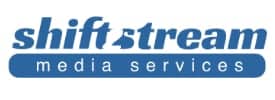- About
- Members
- Sponsors
- Subcommittees
- Technical Documents
- News
- Events
- Spotlight ATSC 3.0
- Contact Us
- Member Login
- Member Meetings
- Advanced Search
Search Site
Member Links
- About
- Members
- Sponsors
- Subcommittees
- Technical Documents
- News
- Events
- Spotlight ATSC 3.0
- Contact Us
- Member Login
- Member Meetings
- Advanced Search
Someone You Should Know: Ali Dernaika
Posted on July 18, 2024 in ATSC News
Ali Dernaika of Hewlett Packard Enterprise was recognized at the 2024 ATSC NextGen Broadcast Conference with the Bernard J. Lechner Outstanding Contributor Award.
The Bernard J. Lechner Outstanding Contributor Award is bestowed once a year to an individual representative of the ATSC membership who’s technical and leadership contributions to ATSC have been invaluable and exemplary. The Lechner Award recognizes the first recipient, the late Bernard Lechner, for his outstanding service to the ATSC. Ali serves as Co-Chair of ATSC Specialist Group TG3/S43, with his work revolving around broadcast core network technologies and the formulation of the Broadcast Core Network standard. Broadcast Core Network is a central technology for developing datacasting businesses. Working on this new concept, Ali took on the role of educator, patiently helping ATSC members understand not just the big picture, but also the details of how core networks function, what they do, and how a successful platform could be designed.
Let’s talk to Ali and get to know him better!
 ”
”
Ali, congratulations! Tell us, what is a snapshot of your typical workday? For me, the day starts early at 7 am, where I attend customer calls from Middle East and Europe, then I spend the day working on projects for Canada and US customers. In the afternoon, I usually spend time with my family and children. I also play sports (volleyball and basketball) on Mondays and Tuesdays.
How and why did you get involved with ATSC 3.0? I was nominated by HPE to participate in PT-8 for envisioning a future where a myriad of telecommunication technologies seamlessly converges and harmonizes to deliver services at unprecedented scales with unparalleled efficiency. Broadcasting is one of the most efficient technologies.
Are you a member of any ATSC planning team(s) or implementation team(s)? Yes, I am a Co-Chair of TG3/S43. My work revolves around the critical domain of broadcast core network technologies and the formulation of broadcast core network standard for ATSC, ushering in a new era in broadcasting.
What excites you most about the future of ATSC 3.0? ATSC 3.0 and broadcasting in general is a great communication technology, that delivers efficiently critical payload to many devices or receivers. ATSC 3.0 is being used currently to deliver live TV but potentially, the exciting news is that this technology can be used to deliver other services to mass market. The evolution of encoding created extra capacity that will be used to deliver other services, and this is an exciting time to witness the transformation of this industry.

Tell us about your family. I am married with two children, a girl who is 14 years old and a boy who is 13 years old.
What are you currently reading? I spend time reading about technology subjects and stock market news.
What are you currently binge-watching? I watch documentaries and I am also a fan of the “Grey’s Anatomy” series.

What are your ideal weekend plans? For me the best time is when summer comes. My passion is camping. I love spending time in nature, camping in remote areas near the Great Lakes.
Posted in ATSC News
News Categories
News Archives
Subscribe
Subscribe to The Standard, our monthly newsletter. Learn More
Join ATSC
ATSC is a membership organization with both voting and observer categories. Voting members include corporations, nonprofit organizations, and government entities, and they participate actively in the work of ATSC. Observers are individuals or entities not eligible to be a voting member.
Subscribe to our Newsletter
Subscribe to The Standard, our monthly newsletter, to stay up-to-date with ATSC news and events around the world.
Site Links
Contact Us
Advanced Television Systems Committee, Inc.
1300 I Street NW, Suite 400E
Washington, DC 20005
Do you have questions about ATSC?
About ATSC
The Advanced Television Systems Committee, Inc., is an international, non-profit organization developing voluntary standards and recommended practices for digital terrestrial broadcasting. ATSC member organizations represent the broadcast, broadcast equipment, motion picture, consumer electronics, computer, cable, satellite, and semiconductor industries. ATSC also develops digital terrestrial broadcasting implementation strategies and supports educational activities on ATSC standards.
© 2025 ATSC







































